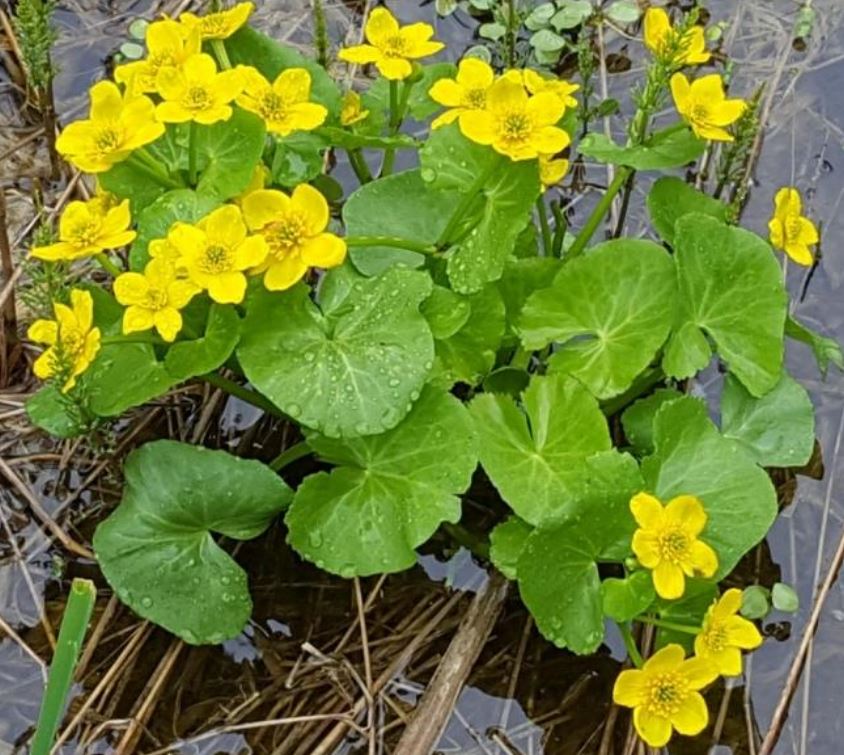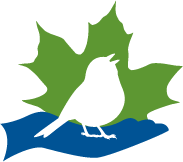
Planting Edible Native Species at Willards Woods – by Russ Cohen
A beautiful, spring-blooming Marsh Marigold (Caltha palustris), one of the native species planted at Willard’s Woods as part of this project.
Introduction: As some of you may already know, I have been sharing my enthusiasm for connecting to nature by nibbling on it for over four decades, since my senior year at Weston High School (see my online bio @ http://users.rcn.com/eatwild/bio.htm for more info).
I typically lead three dozen wild edible walks and talks each year for a variety of sponsors (including the CLC), throughout New England and eastern New York State. I also write about wild edibles (see, e.g., my foraging book, Wild Plants I Have Known…and Eaten, http://users.rcn.com/eatwild/press_release.htm), and that includes a couple of wild edible-themed articles for the CLC newsletter.
Since my retirement from the Mass. Department of Fish and Game in June of 2015, while continuing to offer walks and talks on wild edibles (see http://users.rcn.com/eatwild/sched.htm), I am now playing the role of “Johnny Appleseed” for edible native species, as an expression of gratitude to Mother Nature for providing me with such yummy treats I have been nibbling on for so many years (see more info at http://www.edibleboston.com/blog/2018/6/11/russ-cohens-wild-edible-adventures or : https://www.ecolandscaping.org/wp-content/uploads/2020/02/Cohen_the-Johnny-Appleseed-of-Native-Edible-Species-Russ-Cohen-Wild-Ones-Journal-Spring-2019.pdf).
I have set up a nursery (in Weston) where I grow/keep hundreds of plants, many of which I have propagated from seed that I collected myself. I am then partnering with land trusts, cities and towns, schools and colleges, state and federal agencies, tribal groups and others to plant donated plants from my nursery in appropriate places on their properties.
I have initiated over two dozen such projects in the past five years. The following article describes one of those projects. The seed for this project was planted at the 2016 Massachusetts Trails Conference, at which I attended a workshop presented by Jordan McCarron on the Stewardship of Lexington’s Conservation Lands. I followed up with an email telling Jordan about my postretirement pursuit as a “Johnny Appleseed-for-edible-natives”, and offered to collaborate on a project in Lexington. Jordan, who already knew me (e.g., at his invitation, I had led a wild edibles walk as part of the 2015 Massachusetts Town Forest Conference), responded enthusiastically to say that he was definitely interested.
I then reconnoitered several Town Conservation properties, some with Jordan and some with my wife Ellen, evaluating them for their suitability for further diversification with native edibles. While several good possibilities emerged, none were obvious standouts.
